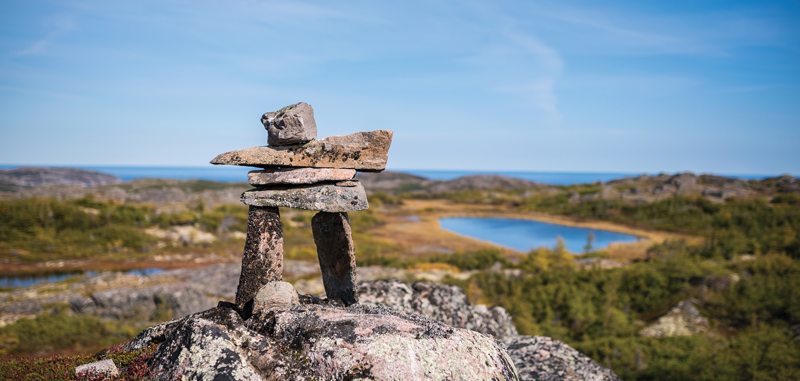Account Login
Don't have an account? Create One

Before we get to the heart of the matter—the important, innovative ways in which the people of Labrador are tackling climate change while attempting to create energy self-sufficiency and sovereignty—there are some preliminary points you should understand.
Hang on. It will get complicated. And take some time.
The first and simplest point, of course, is that the people here aren’t responsible for the ills of the planet.
Let’s start with Nunatsiavut, which means “Our Beautiful Land,” and is a “shockingly beautiful” piece of real estate, “a dusting of abbreviated boreal forest perched on the cliffs and crags of the Labrador coast,” as writer Matthew Halliday put it. It’s a self-governing Indigenous territory that encompasses 116,000 square kilometres of land and sea in northern Labrador, a territory that nestles between the borders of Quebec to the west and the Labrador Sea to the east.
Later, I’ll circle back to central and southern Labrador, known as NunatuKavut, which means “Our Ancient Land” in the dialect of its people. If the names Nunatsiavut and NunatuKavut sound similar to a southern ear, they are, as are their big-picture meanings. But that is where things will get complicated politically, if not economically or environmentally. So, let’s not go there yet.
Let’s stick with Nunatsiavut. If you’re into geographic comparisons, it is bigger than the province of New Brunswick. If you’re making country comparisons, that would also make it larger than Scotland, a country of 5.5 million.
But—and here’s the important point for this discussion—the entire population occupying Nunatsiavut’s considerable land mass totals just 2,095 people. That’s the latest official figure from Canada’s 2021 census.
But then you need to take the fully counted population of Nunatsiavut and sprinkle them among five even tinier, more isolated coastal communities: Rigolet, Makkovik, Postville, Hopedale and Nain.
Urban congestion is definitely not the most pressing environmental issue here.
Continue reading this story: click below to login/subscribe
Login or SubscribeComment policy
Comments are moderated to ensure thoughtful and respectful conversations. First and last names will appear with each submission; anonymous comments and pseudonyms will not be permitted.
By submitting a comment, you accept that Atlantic Business Magazine has the right to reproduce and publish that comment in whole or in part, in any manner it chooses. Publication of a comment does not constitute endorsement of that comment. We reserve the right to close comments at any time.
Cancel